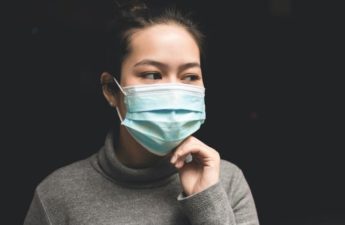Updated dashboard shows continued devastation caused by fentanyl and disparities in overdose deaths

Public Health Insider
Public Health – Seattle & King County
Since 2019, the number of overdose deaths in King County has grown exponentially, jumping by 20% between 2019 and 2020 and 39% between 2020 and 2021. By October 15, 2022, 710 overdose deaths had occurred in King County, surpassing the total number of deaths in 2021.
Fentanyl, a powerful synthetic opioid 50-100 times stronger than morphine, is the cause of the recent overdose death surge. Fentanyl is now involved in 70% of all confirmed overdose deaths to date in 2022, up from under 10% before 2018.
A re-designed Fatal Overdose Dashboard attempts to quantify the tragic toll of drug overdose in King County. The dashboard depicts the pervasiveness of the drug overdose crisis, and its disproportionate impact on specific communities. The fentanyl-fueled overdose surge acutely affects communities most impacted by King County’s housing crisis: people experiencing homelessness, including those living in temporary or supportive housing. Painful and persistent disparities are evident in the disproportionate number of overdose deaths among American Indian/Alaska Native and Black/African American people in King County. These disparities reflect the influence of systemic racism on risk factors for drug-related harms, including intergenerational trauma, inequitable access to resources, and incarceration.
Using the data
The 2022 Fatal Overdose Report summarizes key findings embedded in the Fatal Overdose Dashboard. When browsing the Fatal Overdose Dashboard, hover over graphs to see an interpretation of the statistic presented. The Methods Reportdescribes how the information presented in the Fatal Overdose Dashboard was collected and analyzed.
Addressing stigma
Addressing the overdose crisis starts with talking about overdose and supporting our loved ones who may have a substance use disorder. Instead of stigmatizing those struggling, we must show compassion and share life-saving tools, including options for treatment.
We have resources available to reduce stigma at www.SupportAddictionRecovery.com and for supporting people with substance use disorders.
Here’s how we can prevent overdose
- Check in and show support for the people in our lives. Many folks are struggling and may not show it. Substance use disorder is not a moral failing; it’s a treatable health condition. Find a treatment provider at the Washington Recovery Helpline.
- Order educational materials and fentanyl test strips at https://redcap.link/HRSupplies
- Have naloxone ready. Everyone can get naloxone without a prescription at pharmacies, which most health insurance plans cover. You can also get free naloxone at needle exchange programs and by mail. Find naloxone near you at stopoverdose.org.
- Sign up for email and text alerts about overdose risk and changes in the local drug supply.
- Learn the signs of opioid overdose.
Share these key messages with people at risk for overdose:
- Any amount of fentanyl can be fatal.
- Any pill not prescribed to you may be counterfeit and contain fentanyl. Fentanyl may also be in white powder drugs like cocaine and rock form that resembles crack cocaine.
- Avoid using drugs alone. If this is not an option, use a service like neverusealone.com or have someone check on you regularly.
- If you suspect an overdose, call 911 right away. Even if you give the overdose victim naloxone, they need immediate and ongoing medical care. The Good Samaritan Law protects you and the overdose victim from drug possession charges.
- Methadone and buprenorphine are effective medications to treat opioid use disorder and reduce the risk of death by over 50%. Starting medication is now easier than ever. Currently, you can access care from a buprenorphine provider via phone or online. Call the WA Recovery Helpline at 1-866-789-1511 to get started.


